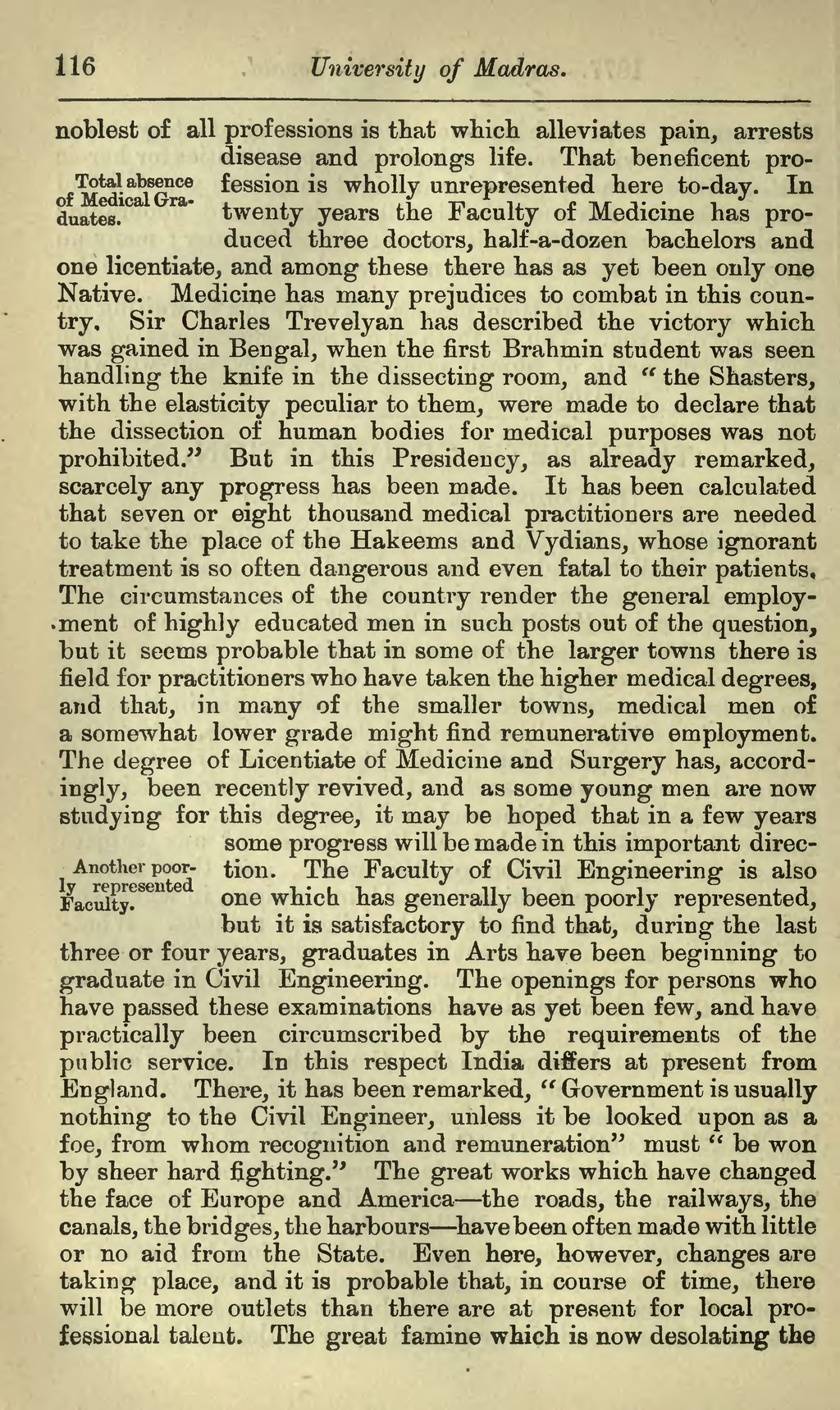noblest of all professions is that which alleviates pain, arrests disease and prolongs life. Total absence of Medical Graduates. That beneficent profession is wholly unrepresented here to-day. In twenty years the Faculty of Medicine has produced three doctors, half-a-dozen bachelors and one licentiate, and among these there has as yet been only one Native. Medicine has many prejudices to combat in this country. Sir Charles Trevelyan has described the victory which was gained in Bengal, when the first Brahmin student was seen handling the knife in the dissecting room, and "the Shasters, with the elasticity peculiar to them, were made to declare that the dissection of human bodies for medical purposes was not prohibited." But in this Presidency, as already remarked, scarcely any progress has been made. It has been calculated that seven or eight thousand medical practitioners are needed to take the place of the Hakeems and Vydians, whose ignorant treatment is so often dangerous and even fatal to their patients. The circumstances of the country render the general employment of highly educated men in such posts out of the question, but it seems probable that in some of the larger towns there is field for practitioners who have taken the higher medical degrees, and that, in many of the smaller towns, medical men of a somewhat lower grade might find remunerative employment. The degree of Licentiate of Medicine and Surgery has, accordingly, been recently revived, and as some young men are now studying for this degree, it may be hoped that in a few years some progress will be made in this important direction. Another poorly represented Faculty. The Faculty of Civil Engineering is also One which has generally been poorly represented, but it is satisfactory to find that, during the last three or four years, graduates in Arts have been beginning to graduate in Civil Engineering. The openings for persons who have passed these examinations have as yet been few, and have practically been circumscribed by the requirements of the public service. In this respect India differs at present from England. There, it has been remarked,"Government is usually nothing to the Civil Engineer, unless it be looked upon as a
foe, from whom recognition and remuneration" must "be won by sheer hard fighting." The great works which have changed the face of Europe and America — the roads, the railways, the canals, the bridges, the harbours — have been often made with little or no aid from the State. Even here, however, changes are taking place, and it is probable that, in course of time, there will be more outlets than there are at present for local professional talent. The great famine which is now desolating the